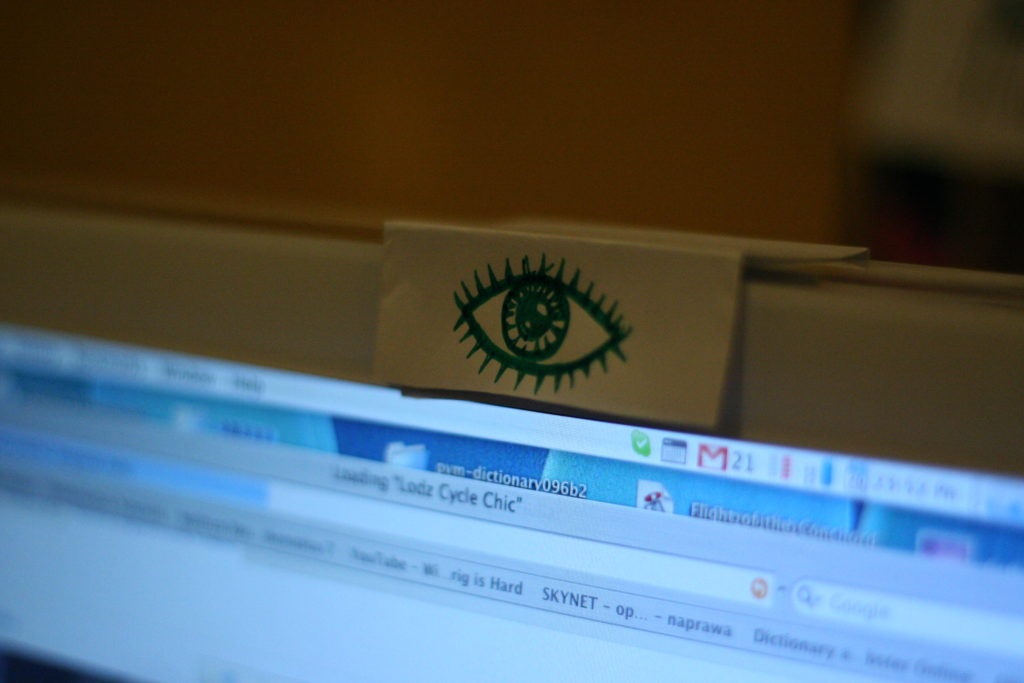
Picture this: you’re surfing Twitter or Facebook to fill the boredom in your day. You may also shop on Amazon for the latest deals on home accessories. Suddenly, you come across a post that details inflammatory information on a sensitive topic. Feeling morally obliged to spread the word, you share it on your social media while giving your own two cents on whatever your stance may be. Hardly any time seems to pass between that action and the moment you’re either locked out of all social media and shopping accounts or getting an unwelcome knock on the door from a government official or law enforcement. You’re constricted, barred from having the liberty to socialize, buy certain items or even have a quiet moment all to yourself.
It sounds like something out of an episode of Black Mirror, but, for individuals living under authoritarian rule, this is a reality. Citizens of these nations, such as Venezuela, Saudi Arabia or, especially, China (of which this primarily focuses on), are functioning under governments that only allow them to behave, generally speaking, in a way that is acceptable to them. Said entity will gather data on the public so that, when someone decides to dissent, basic freedoms are stripped from them. Loyalty to the regime is encouraged, and everything remains intact. Despite this, there is hope in the form of technology and practices such as Bitcoin that allow the public to subvert the rules set by oppressive regimes and have their voice heard more frequently.
I recently had the privilege to speak with Alex Gladstein of the Human Rights Foundation about all of this. He will speak at The Dark Side of Tech: Surveillance and Propaganda panel at SXSW 2019. We spoke about the dangers of surveillance technology in oppressive regimes (particularly in China), what kind of action is taking place that is helping the common folk gain greater liberty, and what we can do to make sure it doesn’t happen in a free country like the United States.
What motivated you into taking up researching and/or learning more about this specific field?
“I’m motivated in two ways. I’m motivated by fear, by looking at what governments are building in terms of network architecture that takes our data, information, money and agency out of our hands. And I am also motivated by hope. Looking at decentralized, open architectures like the internet and Bitcoin that allow people to run their own money, information and data.”
Has your work with the Human Rights Foundation helped build upon this understanding and motivation?
“Definitely. The Human Rights Foundation focuses on people who live under authoritarian government, and, at the end of the day, this is a much more urgent issue for them. Their government controls their money, information or their communications — they’re censoring them. The threat is a lot more real. In America today, the threat is basically a lot like how creepy it is that, for example, thirty seconds after I buy something on Amazon, I get an advertisement on Facebook for it. In China, thirty seconds later, you would get a knock at the door. So this is real for people who live under an authoritarian government. In Western society, it’s viewed as more of an inconvenience or has a level discomfort. These things are worrying in a free country, but they are terrifying in a country like Venezuela, China or Saudi Arabia.

With more advances being made in surveillance technology, do you think certain implications exist for the governments or regimes that want to maintain control over their people?
“Yes. Repressive governments and their corporate henchmen go after perceived troublemakers and dissidents. They’re trying to create an environment where dissent is highly risky — you might lose your ability to take out a loan, go to a good school or travel abroad. They want to use social engineering and advanced technology to create infrastructures, social networks, national identification systems and financial systems that basically are built to keep you loyal.”
“The first step is vacuuming up your personal data and then acting on it. They would gather information on, say, Frank, and his personal interests, his favorite shows, his favorite eateries, his Venmo or where he banks. Step two is, if Frank does something bad, hurting Frank to where he can’t access his Facebook or Venmo accounts. In America, we only have step one. A lot of corporations are getting their hands on personal data, but, at the end of the day, your freedoms aren’t being taken away from you. So that’s why this panel is focused specifically on China to talk about what’s happening.”
Do you think efforts to prevent or fight things such as the situation in China are possible? Is it already happening in places like China?
“I think we have to be very garish on having some sort of digital rights revolution inside China. What we can do is encourage tech companies and governments in free countries to respect our rights. We can protest, demand and persuade. We can build freedom technology. Even in China, you’re seeing Bitcoin break the control of the government. People are using Bitcoin to create a parallel economy and using it to go around preset controls set by their government. The government hasn’t really cracked down on this yet, but we’re not really sure if they have a clue. It’s really interesting to look at. There are bad people who use Bitcoin, just like how there are bad people who use the internet. But, ultimately, the internet put all human knowledge in the pockets of every person on Earth. So I believe that Bitcoin, likewise, will be a liberation tool, as will other networks that are not centralized.”

“I have the same degree of respect and fear for what, to illustrate, the Chinese government has built — it’s very impressive, with things like what they did with WeChat and how it functions like an ecosystem or operating system. They’re becoming increasingly good at figuring out what to do with the information that you may put out there from the moment you wake up to when you go to bed. I have the same respect for what the anonymous creators of Bitcoin built, but I also have admiration, as well, rather than fear. There’s no intermediary, no place for the state to come in and assert themselves in the middle of your transactions and interactions. Ultimately, I’m equal parts afraid and inspired.”
Is this your first time at SXSW? What kind of impact are you hoping to make, or what do you hope to get out of it?
“This will be my fourth time. My main goal is to bring these really remarkable speakers to the community and allow them to share with the community in Texas what’s happening in China, the world’s biggest country, and what’s actually happening with advanced, surveillance and social engineering technology. Also, why we should be afraid of it and to make sure that it doesn’t happen in our own country as well. That is my goal.”
The Dark Side of Tech: Surveillance and Propaganda
March 10, 2019 — 12:30-1:30pm
The Line
Topaz Ballroom 1-2-3

Comments are closed, but trackbacks and pingbacks are open.